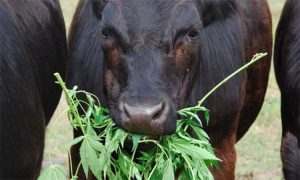 For the latest CBD-Intel coverage of Italy – including the most up-to-date regulatory briefings – click here.
For the latest CBD-Intel coverage of Italy – including the most up-to-date regulatory briefings – click here.
The Italian government has responded to confusion over permitted THC levels in hemp-derived products such as foods, oils, supplements and animal feeds by informing the European Commission of its plans.
The country’s health ministry written to the Commission setting out its plans to regulate the amount of THC which can legally be in products derived from hemp and low-THC cannabis.
The ministry told the EC it intended to limit THC content to 2 mg per kg (0.0002%) for hemp seeds, hemp seed flour, and food supplements derived from hemp seed.
However, hemp seed oils can contain up to 5 mg/kg (0.0005%).
The news follows confusion about the amount of THC allowed in hemp-based agricultural feed.
Agriculture undersecretary Alessandra Pesce told the farming news website Agro Notizie: “There’s an open dossier, which we are working on right now, and we hope to be able to issue a ministerial decree about fixing the limit of THC allowed in food derived from industrial hemp.”
Pesce said the agriculture, food and forestry ministry was using its internal resources to ensure the future limit was the right one, adding: “We’re doing an accurate study, so the decree can’t be overturned once it’s enacted.”
Flexibility over THC levels
Domenico Cerrato, of the Council for Agricultural Research and Agricultural Economy Analysis (CREA), said that although the ministry had ruled hemp feed could be promoted, the law did not specify precisely how much THC could be in animal feeds.
“The regulatory gap regarding the maximum content of THC in food continues to create many problems for farmers and companies engaged in relaunching the hemp supply chain,” Cerrato said.
Though farmers are currently supposed to limit feed to 0.2% THC, if a farmer is found generally to have complied with regulations, he will not be prosecuted even if the THC content is as high as 0.6%.
Similarly, farmers growing hemp or low-THC cannabis are also supposed to have a THC level of at most 0.2% in plants but will not be charged if crops are shown to have levels of up to 0.6%, as explained in CBD-Intel’s Italian regulatory snapshot.
Growing cannabis for medical purposes (under authorisation) or for industrial purposes (certified seeds and varieties included in the EU catalogue) is legal.
For a deeper look at the Italian laws and regulations that apply to CBD, as well as the growth of low-THC cannabis and industrial hemp, subscribers can access CBD-Intel’s latest regulatory snapshot on the country.
What This Means: As in many countries, Italy’s laws around industrial hemp and its cannabinoid content are somewhat ambiguous. This is true both for foodstuffs for human consumption and animal feeds.
Hopefully, the Italian government’s notification to the European Commission can help clear things up for the former, while the agriculture ministry can fix the latter’s limits in the near future. This should help businesses by providing some much-needed clarity.
– Peter Henn CBD-Intel contributing writer
Photo: Feedipedia







